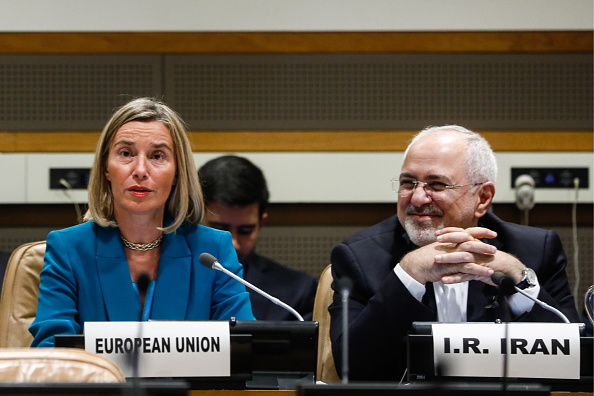President Rouhani reportedly plans to announce that Iran is reducing its commitments under the JCPOA, in response to the U.S. withdrawal last year. Some Iranian officials stressed that Iran was not leaving the agreement, even as the US ratcheted up pressure on Tehran’s nuclear program.
The ANNOUNCEMENT AND NEXT STEPS
On May 7 — nearly a year after the United States under President Trump withdrew from the JCPOA — Iranian news outlets reported that President Rouhani plans to inform leaders of the P5+1 that the Iranian government will soon “reduce its commitments” to the agreement as negotiated in 2015: “In response to the unilateral withdrawal of the United States […], the Islamic Republic of Iran will announce Wednesday its decision to reduce its commitments under this agreement.”
What steps in particular Tehran may take are not yet known, as the vagueness of the initial press report indicates. The most obvious first step in the process would be to trigger Article 36 of the JCPOA, which calls for referring issues stemming from noncompliance “to the joint commission for resolution.” That measure, in turn, would trigger a 35-day waiting period of consultations, which could lead Iran to declare that the U.S. was guilty of “significant non-performance” and cite that non-performance as grounds to cease discharging its commitments under the deal.
On an operational level, matters are less clear. Some experts believe Iran may resume enrichment activities, accelerate advanced centrifuge research and development, or accumulate excess nuclear materials. Since the JCPOA was first implemented, Iranian officials have repeatedly spoken of Supreme Leader Ali Khamenei’s directive to prepare the nuclear program for a quick rebound, should the deal falter or fail, along with a highly ambitious uranium enrichment goal of 190,000 separative work units.

INTERNATIONAL REACTION
European diplomats were quick to respond. “We do not want Tehran to announce tomorrow actions that would violate the nuclear agreement, because in this case we Europeans would be obliged to reimpose sanctions as per the terms of the agreement,” said one French source. “We don’t want that and we hope that the Iranians will not make this decision.”
In an apparent bid to preempt hostile international reception, Foreign Minister Javad Zarif issued a statement stressing that Tehran had no immediate plans to abandon the JCPOA. According to state media, Zarif claimed that “Iran’s future actions will be fully within the (nuclear deal), from which the Islamic Republic will not withdraw.” In a minimally veiled criticism of US allies, Zarif noted that “the European Union and others ... did not have the power to resist U.S. pressure, therefore Iran ... will not carry out some voluntary commitments.”
This follows only four days after the U.S. Treasury Department announced that it was not renewing two nuclear sanctions waivers that permit other signatories to the nuclear deal with Iran to pursue civil nuclear cooperation projects. Revoking the waivers constitutes another means of pressing Tehran to halt the production of low-enriched uranium and heavy water — a goal figuring prominently in the administration’s “Maximum Pressure” campaign to curb both Iran’s nuclear program and its aggressive regional posture.








